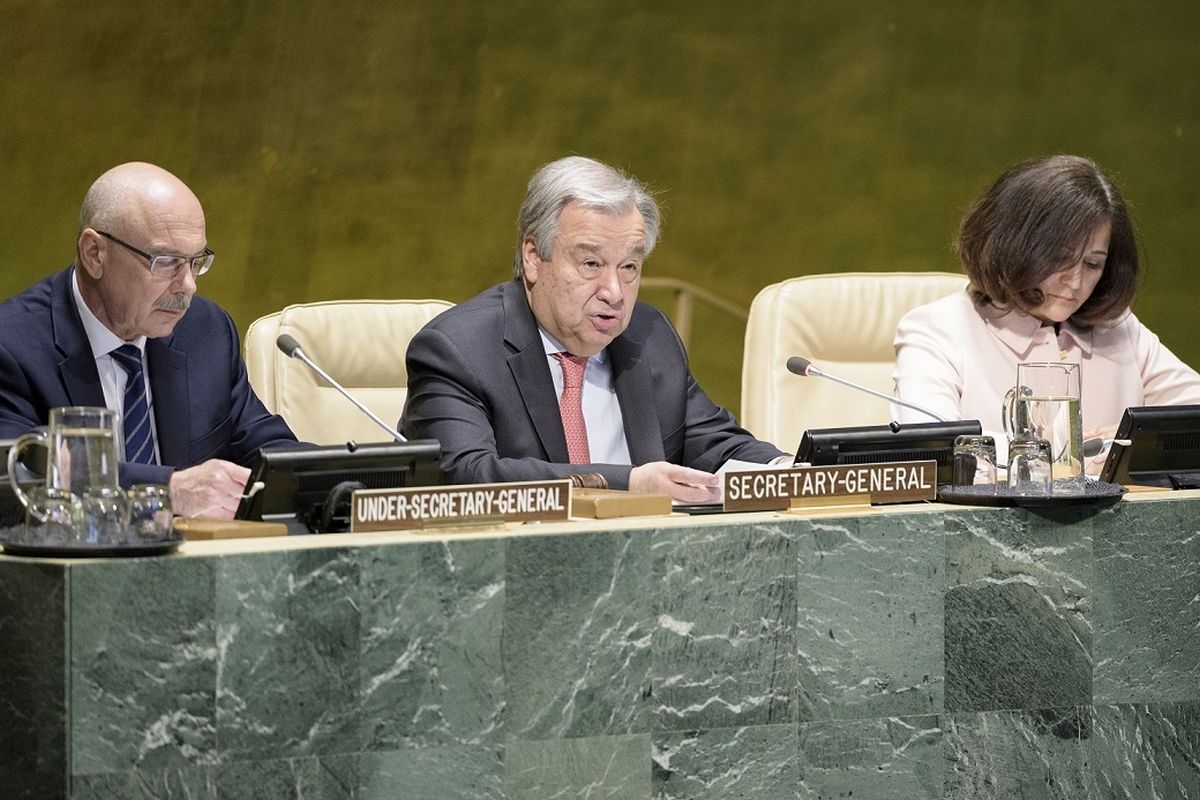Handloom fashion show at Bharat Tex 2025 attracts buyers from Europe, Australia
The event was organised at the amphitheatre in Bharat Mandapam as part of the Bharat Tex 2025 exhibition being held here from February 14-16.
Guterres warned, “Many are well trained and could carry out future terrorist attacks, others hope to radicalise and recruit new followers to their cause”.

United Nations Secretary-General Antonio Guterres, flanked by Vladimir Voronkov, Under-Secretary-General of the UN Office of Counter-Terrorism and Atefeh Riazi, Assistant Secretary-General for Information and Communications Technology, speaks at the high-level event to launch the UN Countering Terrorist Travel Programme on Tuesday, May 7, 2019 (Photo: IANS)
UN Secretary-General Antonio Guterres has warned of a major global threat from foreign fighters fleeing the defeated Islamic State (IS) terrorist organisation and declared stopping them should be a high global priority.
“They, as well as those they inspire, represent a major transnational threat”, he said on Tuesday at the launch of the UN Countering Terrorist Travel Programme (CTTP). “Detecting and disrupting these terrorists and other high-risk criminals prior to them carrying out an attack is a high priority for the international community”.
Advertisement
He warned, “Many are well trained and could carry out future terrorist attacks. Others hope to radicalise and recruit new followers to their cause”.
Advertisement
Two years ago the UN estimated that over 40,000 foreign terrorists from more than 110 countries may have travelled to Syria and Iraq to join terrorist groups, he said. With the fall of the territories held by IS, many of them are returning home or relocating to other trouble spots or safe haven, he added.
“It is apparent that these terrorist who lost territory elsewhere are looking for new pressure points to ignite”, Sri Lanka’s Permanent Representative Rohan Perera, whose nation was attacked by Islamist terrorists last month on Easter, said.
Two affiliates of IS has claimed responsibility for the Easter suicide bombings in his country and it is investigating IS links to two local groups, National Thowheed Jamath and Jamath Millate Ibrahim, he said.
Perera, who is also the head of the UN Committee on Measures to Eliminate International Terrorism, said that Sri Lanka is pursuing efforts to establish regional counter-terrorism there.
Under-Secretary-General Vladimir Voronkov, the head of the Office of Counter-Terrorism, described the CCTP as a flagship programme of his office in partnership with the Counter-Terrorism Committee Executive Directorate (CTED), the International Civil Aviation Organisation (ICAO), the Office of Information Communication Technology (OICT) and the United Nations Office on Drugs and Crime (UNODC).
Guterres thanked India for its continued support to the UN’s counter-terrorism programmes.
Under the programme, the UN is to provide state-of-the-art software, gravel, which is capable of analysing travel data to help countries track terrorism suspects across borders, according to the UN. It will be able to cross-check data from the Advance Passenger Information System used by some government agencies and Passenger Name Record used by airline reservation systems with international databases of terrorist and criminals through enhanced information exchange.
Advertisement